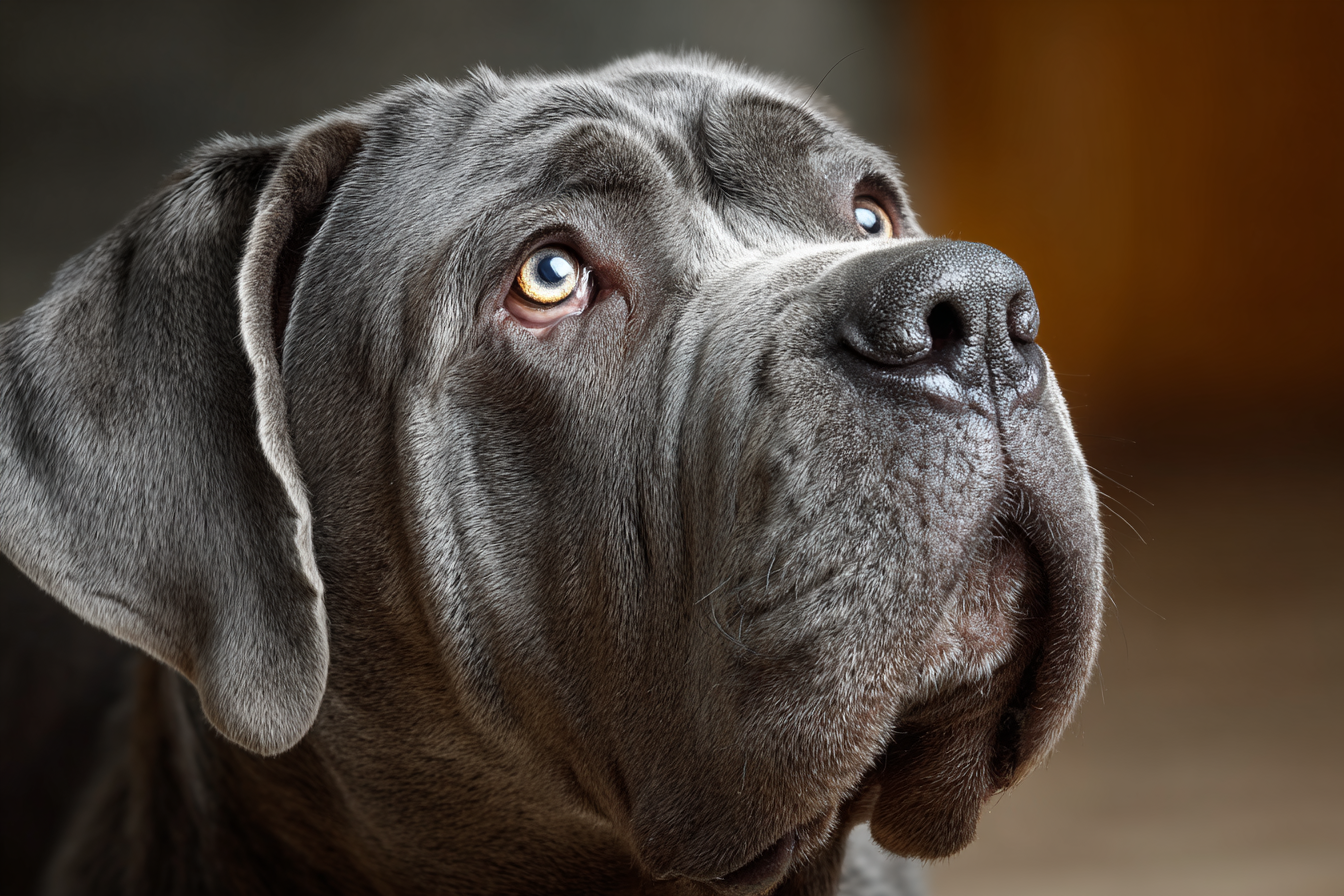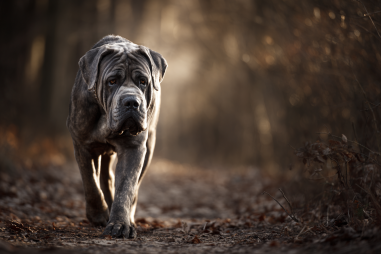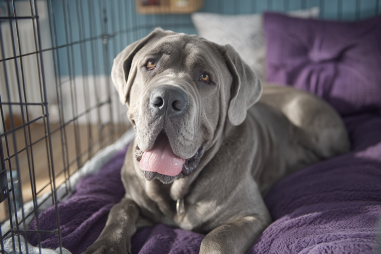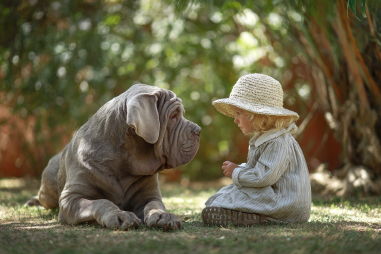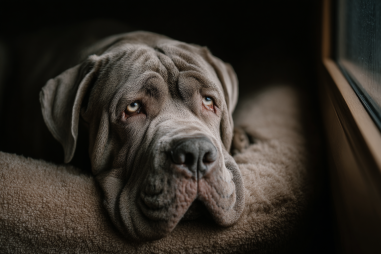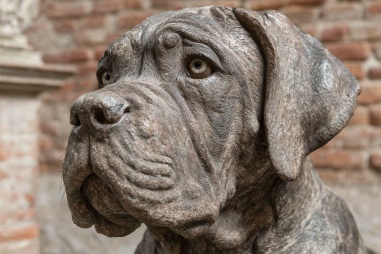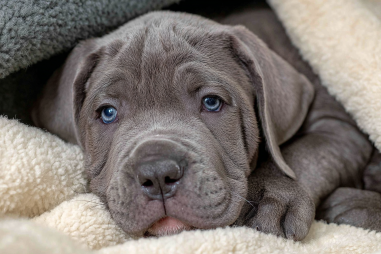Neapolitan Mastiffs are gentle giants known for their loyal and affectionate nature. However, like any dog breed, they can develop behavioral issues if their needs are not properly met or if they lack consistent training. Understanding these common behavioral challenges and how to address them early on is key to enjoying a happy, well-adjusted companion. In this article, we’ll explore typical behavior problems in Neapolitan Mastiffs, what causes stubbornness or aggression, effective training interventions, the importance of physical and mental activity, when to seek professional help, and strategies to prevent issues starting in puppyhood.
Typical Behavior Problems in Neapolitan Mastiffs
While generally calm and even-tempered, Neapolitan Mastiffs can sometimes exhibit behaviors that are problematic for owners unfamiliar with the breed’s unique traits. Some of the common issues include:
- Stubbornness: Neapolitan Mastiffs are intelligent but can be quite willful. They may choose to ignore commands or show selective hearing, especially if training isn’t engaging or consistent.
- Territorial aggression: This breed tends to be protective of their family and home, which can sometimes escalate into aggressive displays toward strangers or other animals if not properly socialized.
- Separation anxiety: Due to their loyalty and attachment to family members, they can become stressed when left alone for extended periods, leading to destructive behaviors like chewing or barking.
- Excessive vocalization: While often quiet, Neapolitan Mastiffs may bark or growl to alert their owners, but unmanaged, this can become excessive and troublesome.
- Resource guarding: They may protect food, toys, or resting spots, which requires careful management to prevent aggressive interactions.
Causes Behind Stubbornness or Aggression
To effectively address stubbornness or aggression, it’s important to understand what triggers these behaviors in a Neapolitan Mastiff. These causes often include:
- Lack of Socialization: Without early and ongoing exposure to various people, animals, environments, and situations, Neapolitan Mastiffs may react fearfully or defensively.
- Inconsistent Training: If rules and boundaries are not clear or consistently enforced, these dogs can become confused or test limits to see what they can get away with.
- Fear and Anxiety: Aggression can often be a defense mechanism. A dog that feels threatened or insecure might respond with growling, snapping, or barking.
- Pain or Discomfort: Physical issues such as joint pain or illness can cause irritability and aggression, especially in a breed prone to joint problems.
- Inherited Traits: While temperament varies among individual dogs, genetics plays a role. Some lines might show stronger tendencies toward stubbornness or protectiveness.
Training Interventions and Correction
Effective training is critical to managing and correcting behavioral issues in Neapolitan Mastiffs. Here are strategies tailored to their unique personality:
- Positive Reinforcement: Reward-based training works best. Use treats, praise, and affection to encourage desired behaviors rather than punishment, which can increase fear or aggression.
- Consistency is Key: Everyone in the household should use the same commands and rules to avoid confusing the dog and inadvertently encouraging bad behavior.
- Start Early: Puppies are more adaptable and less set in their ways. Early obedience classes can help establish a foundation of good manners.
- Set Clear Boundaries: Teach your dog what behaviors are unacceptable and redirect unwanted actions firmly but calmly.
- Address Aggression Carefully: If aggressive behavior emerges, working with a professional trainer or behaviorist who understands the breed’s traits is essential for safe and humane correction.
Role of Exercise and Mental Stimulation
A well-exercised Neapolitan Mastiff is a happier and better-behaved dog. Physical and mental stimulation help reduce restlessness, boredom, and anxiety that often lead to behavioral problems.
Despite their large size and somewhat slow demeanor, Neapolitan Mastiffs require daily moderate exercise like walks or gentle playtime. However, avoid high-impact activities that might stress their joints.
Mental stimulation is equally important. Puzzle toys, obedience training sessions, scent games, and interactive play keep their minds sharp and engaged. This combination helps curb unwanted behaviors like excessive barking or destructive chewing caused by boredom.
Professional Help When Needed
Sometimes behavioral problems can escalate beyond simple correction at home. Aggression or severe anxiety issues might require intervention by experienced professionals. Dog trainers or veterinary behaviorists can provide:
- Detailed behavior assessments to identify underlying causes
- Customized training programs tailored to the dog’s specific needs
- Guidance on safe management techniques to reduce risk of injury or escalation
- Medical evaluations if physical pain or health conditions are contributing factors
Seeking professional help early on can prevent problems from becoming ingrained, ensuring the Neapolitan Mastiff remains a loving and well-balanced companion.
Prevention Strategies for Puppy Stage
The best way to avoid behavioral problems in Neapolitan Mastiffs is to start strong during puppyhood. Key preventative measures include:
- Early Socialization: Expose puppies to a variety of people, other dogs, noises, sights, and situations in a positive, controlled way to build confidence and reduce fearfulness.
- Basic Training: Begin simple obedience exercises right from home. This builds good habits, teaches impulse control, and encourages a trusting bond.
- Consistent Routines and Boundaries: Establish clear rules about where the puppy can go, what they can chew on, and how they should behave from the start.
- Positive Reinforcement Focus: Train with kindness and rewards rather than harsh discipline to foster a cooperative and eager learner.
- Provide Proper Exercise and Toys: Meet their physical and mental needs to prevent destructive energy outlets.
- Regular Veterinary Care: Maintain health screenings to catch and manage any conditions that could affect behavior.
By dedicating time and effort during the puppy stage, owners can set the groundwork for a trustworthy, obedient, and happy Neapolitan Mastiff.
Enjoying Life with a Well-Behaved Neapolitan Mastiff
Owning a Neapolitan Mastiff is a rewarding experience that comes with unique challenges due to the breed’s size and temperament. Understanding the common behavioral issues and proactively addressing them through proper training, exercise, socialization, and professional support when necessary ensures your Neapolitan Mastiff grows into a loyal, gentle giant that fits seamlessly into your family life.
With patience, consistency, and love, you can help your Neapolitan Mastiff overcome stubbornness or aggression and enjoy a lifelong bond built on mutual respect and understanding.

